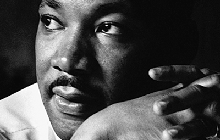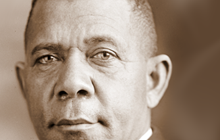There was a novel growing in him, but its exact nature eluded him. It would be a big book, he knew that, ranging widely over space and time. A book of journeys. That felt right. He had dealt, as well as he knew how, with the worlds from which he had come. Now he needed to connect those worlds to the very different world in which he had made his life. He was beginning to see that this, rather than India or Pakistan or politics or magic realism, would be his real subject, the one he would worry away at for the rest of his career: the great question of how the world joins up—not only how the East flows into the West and the West into the East but how the past shapes the present even as the present changes our understanding of the past, and how the imagined world, the location of dreams, art, invention, and, yes, faith, sometimes leaks across the frontier separating it from the “real” place in which human beings mistakenly believe they live.
This was what he had: a bunch of migrants, or, to use the British term, “immigrants,” from India, Pakistan, and Bangladesh, through whose personal journeys he could explore the joinings-up and also the disjointednesses of here and there, then and now, reality and dreams. He had the beginnings of a character named Salahuddin Chamchawala, Anglicized to Saladin Chamcha, who had a difficult relationship with his father and had retreated into Englishness. Chamcha would be a portrait of a deracinated man, fleeing from his father and his country, from Indianness itself, toward an Englishness that wasn’t really letting him in, an actor with many voices who did well as long as he remained unseen, performing on radio or doing TV voice-overs, a man whose face was, despite his Anglophilia, “the wrong color for their color TVs.”
And opposite Chamcha . . . well, a fallen angel, perhaps. In 1982, the actor Amitabh Bachchan, the biggest star of the Bombay cinema, had suffered a near-fatal injury to his spleen while doing his own movie stunts in Bangalore. In the months that followed, his hospitalization was daily front-page news. As he lay close to death, the nation held its breath; when he rose again, the effect was almost Christlike. There were actors in southern India who had attained almost godlike status by portraying the gods in movies called mythologicals. Bachchan had become semi-divine even without such a career. But what if a god-actor, afflicted with a terrible injury, had called out to his god in his hour of need and heard no reply? What if, as a result of that appalling divine silence, such a man were to begin to question, or even to lose, the faith that had sustained him? Might he, in such a crisis of the soul, begin to lose his mind as well? And might he in his dementia flee halfway around the world, forgetting that when you run away you can’t leave yourself behind? What would such a falling star be called? The name came to him at once, as if it had been waiting for him to capture it. Gibreel. The Angel Gabriel, Gibreel Farishta. Gibreel and Chamcha: two lost souls in the roofless continuum of the unhoused. They would be his protagonists.
The journeys multiplied. Here was a fragment from somewhere else entirely. In February, 1983, thirty-eight Shia Muslims, followers of a young woman named Naseem Fatima, were convinced by her that God would part the waters of the Arabian Sea at her request, so that they could make a pilgrimage across the ocean floor from Karachi to the holy city of Karbala, in Iraq. They followed her into the waters and many of them drowned. The most extraordinary part of the incident was that some of those who survived claimed, despite all the evidence to the contrary, to have witnessed the miracle.
He had been thinking about this story for more than a year now. He didn’t want to write about Pakistan, or Shias, so in his imagination the believers became Sunni, and Indian. As Sunnis, they wanted to go to Mecca, not Karbala, but the idea of the parting of the sea was still at the heart of the tale.
Other fragments crowded in, many of them about the “city visible but unseen,” immigrant London in the Age of Thatcher. The London neighborhoods of Southall, in West London, and Brick Lane, to the east, where Asian immigrants lived, merged with Brixton, south of the river, to form the imaginary central London borough of Brickhall, in which a Muslim family of orthodox parents and rebellious teen-age daughters ran the Shaandaar Café, its name a thinly disguised Urdu-ing of the real Brilliant Restaurant, in Southall. In this borough, interracial trouble was brewing, and soon, perhaps, the streets would burn.
He remembered hearing an Indian politician on TV talking about the British Prime Minister and being unable to pronounce her name properly. “Mrs. Torture,” he kept saying. “Mrs. Margaret Torture.” This was unaccountably funny, even though, or perhaps because, Margaret Thatcher was not a torturer. If this was to be a novel about Mrs. T.’s London, maybe there was room—comic room—for this variant of her name.
In his notebook, he wrote, “How does newness enter the world?”
“The act of migration,” he wrote, “puts into crisis everything about the migrating individual or group, everything about identity and selfhood and culture and belief. So if this is a novel about migration it must be that act of putting in question. It must perform the crisis it describes.”
And he wrote, “The Satanic Verses.”
The book took more than four years to write. Afterward, when people tried to reduce it to an “insult,” he wanted to reply, “I can insult people a lot faster than that.” But it did not strike his opponents as strange that a serious writer should spend a tenth of his life creating something as crude as an insult. This was because they refused to see him as a serious writer. In order to attack him and his work, they had to paint him as a bad person, an apostate traitor, an unscrupulous seeker of fame and wealth, an opportunist who “attacked Islam” for his own personal gain. This was what was meant by the much repeated phrase “He did it on purpose.” Well, of course he had done it on purpose. How could one write a quarter of a million words by accident? The problem, as Bill Clinton might have said, was what one meant by “it.”
The ironic truth was that, after two novels that engaged directly with the public history of the Indian subcontinent, he saw this new book as a more personal exploration, a first attempt to create a work out of his own experience of migration and metamorphosis. To him, it was the least political of the three books. And the material derived from the origin story of Islam was, he thought, essentially respectful toward the Prophet of Islam, even admiring of him. It treated him as he always said he wanted to be treated, not as a divine figure (like the Christians’ “Son of God”) but as a man (“the Messenger”). It showed him as a man of his time, shaped by that time, and, as a leader, both subject to temptation and capable of overcoming it. “What kind of idea are you?” the novel asked the new religion, and suggested that an idea that refused to bend or compromise would, in all likelihood, be destroyed, but conceded that, in very rare instances, such ideas became the ones that changed the world. His Prophet flirted with compromise, then rejected it, and his unbending idea grew strong enough to bend history to its will.
When he was first accused of being offensive, he was truly perplexed. He thought he had made an artistic engagement with the phenomenon of revelation—an engagement from the point of view of an unbeliever, certainly, but a genuine one nonetheless. How could that be thought offensive? The thin-skinned years of rage-defined identity politics that followed taught him, and everyone else, the answer to that question.






_17422494921.png )

